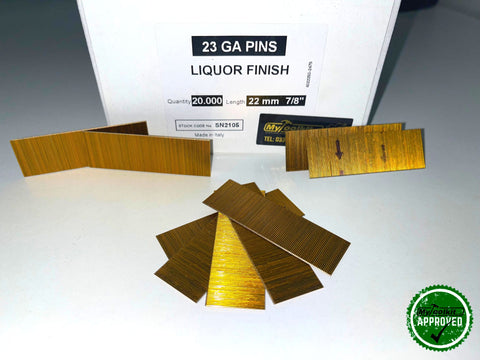Greetings, all
Welcome back to another one of our Hints and Tips blogs. We recently received a customer inquiry reading as follows: “all your fasteners seem to come in one of three material finishes Liquor, Galvanised or Stainless steel. Whilst I can guess the last two the liquor confuses me and I can't seem to find anything on your website to explain these types and what they are good for etc..“.

For this reason, we figured we would sprinkle some of our expertise on the topic as it is not one that is well understood even within some parts of the industry. In this article, you can expect the differences between Liquor, Galvanised & Stainless-steel to be concisely outlined in an easy-to-understand fashion. While we have already examined the pros and cons of Stainless-steel Vs. Galvanised; liquor is a finish yet to be discussed. So, I suppose more specifically, this article aims to tackle (a) what a liquor finish is and (b) how it differs from that of 304 Stainless-steel/Galvanised.
And on that note, let’s get to it!
- What is a liquor finished fastener?
For those who do not have any awareness of the term ‘liquor finish,’ it comes into play when purchasing 23-gauge headless pins. We do not currently stock nor are aware of any other fasteners where a liquor finish is applied – it is reasonably uncommon.
As concisely as possible, liquor finished fasteners are bright metal with no particular special finish applied, and therefore the least resistant to corrosion - there is a passing reference to the difference in this blog on our website. The removal of the ‘finishing’ process at manufacturing level means that the pin is cheaper to produce and thus sold with a cheaper price tag. As discussed in our blog however, while the price may look nice, bright and liquor fasteners have no protection from rust or corrosion. You may find yourself having to repair or replace these fasteners quite often if left exposed to the elements.
Elsewhere, Liquor finish is described as “A smooth, bright finish characteristic of wet-drawn wire when a liquor from fermented grain mash is used as a drawing lubricant” (Optimum Spring Manufacturing, n/d) so that confirms it is more related to the way that the staples/brads are produced than any applied finish. The perceived visible liquor ‘finish’ is in fact just a lubricant applied to ease robotic extraction of the pins during manufacturing.
- What’s the difference between Liquor, Stainless-Steel and Galvanised?
Moving forward, let's compare liquor, galvanised and stainless-steel finishes.
Off the bat, you can tell a liquor finish from the rest by their yellow/bronze colour – this is the lubricant applied on top of the bright metal.
While there is no additional process required achieving a liquor finish, the process of galvanisation requires a molten zinc reaction to take place, forming a zinc/iron alloy (that’s about as far as my sciencey knowledge goes though!). This alloy provides a layer of protection over the bright steel which is measured in microns (thickness) - the higher the microns, the better the protection. The majority of our coil nails, for example, are supplied with a minimum of 12 microns, compared to the industry minimum of 6 microns. Overall, the galvanised finish provides some measure of protection against the elements, but rust is still likely to occur over time. This is where Stainless-steel comes into play...
Stainless steel is a completely different metal, an alloy typically made up of iron, chromium, and nickel (Aperam, n/d). The compound provides additional strength and excellent protection against corrosion & rust – hence the increased price tag. Not to worry though, we would never try and sell you something you do not need! We only ever advise purchasing stainless steel when the intended use is for outdoor applications such as fences and sheds. You can find out if you need stainless-steel in our article ‘Do you really need to use stainless steel?’.

And with that comes the end of today's hints & tips blog. I hope that you’ve learned something new and should you have any further questions or queries, please do not hesitate to contact us. You can call 0333 8000 345 or email us at info@mytoolkit.co.uk
Until next time,
Gavin




